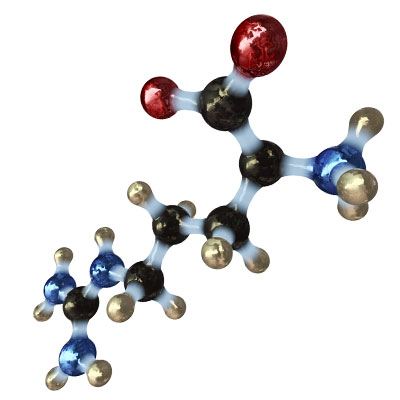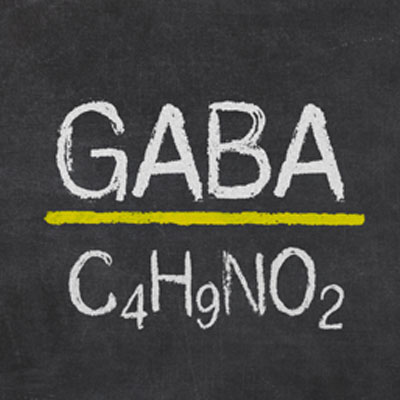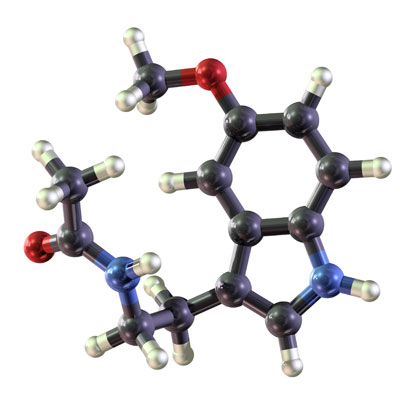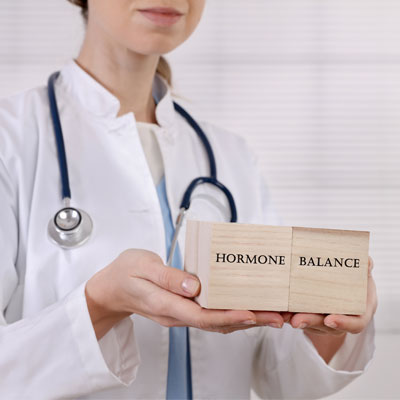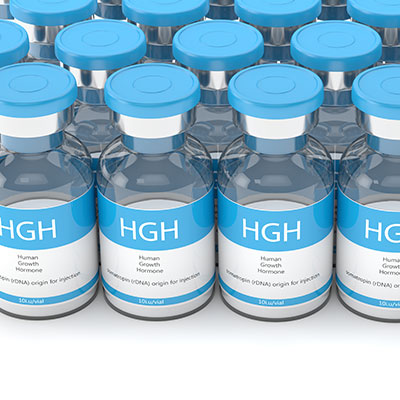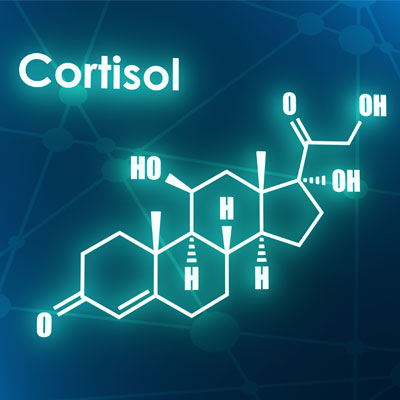Contents

1. Sleep
Optimize the quality and quantity of your sleep so that you get a minimum of seven hours every night. Eight hours is the ideal target.
Sleep tops the list of the top 10 ways to increase HGH production because that is when more than half your body’s daily supply of HGH occurs while you are in deep, slow wave sleep. The body also utilizes HGH while you sleep for tissue recovery and repair, cognitive processing, metabolism, and immune support.
The most significant pulsatile bursts occur during your first deep sleep stage, just before midnight. The body’s natural circadian rhythm is best served if you are in bed before 11 pm. 10 pm is optimal for the best quality sleep.
Optimize your ability to fall asleep by: Reducing caffeine intake later in the day, keeping your room cool, turning off electronics at least an hour before bed, reading a book or listening to quiet music at night
Aim for 7 to 8 hours of sleep each night for maximum human growth hormone production.
2. Weight Loss
Increased body fat has a direct relationship with low HGH levels. Adults with the highest amount of belly fat often have lower growth hormone levels than individuals with less abdominal fat.
Since HGH also stimulates insulin growth factor 1 release, it is no surprise that IGF-1 levels are also lower in overweight adults.
Being overweight also increases the risk of sleep apnea which can interfere with sleep quality. The result here would be a decline in HGH production due to impaired sleep.
Carrying around excess weight can reduce HGH production. Loss of belly fat can help improve human growth hormone levels.
3. Exercise
High-intensity interval training has been shown to increase HGH production significantly following the workout.
You only need to exercise for 20 to 30 minutes three times a week to accomplish this goal. HIIT is one of the best ways to increase growth hormones.
Interval training, sprints, circuit training, or working out with weights can all maximize HGH secretion when performed at a rate of two minutes of moderate activity followed by a 20 to 30-second high-intensity burst.
High-intensity interval training maximizes HGH production in the shortest time.
4. Intermittent Fasting
HGH secretion during the day responds to fasting. After you eat, the food you consume undergoes conversion into glucose. The pancreas secretes insulin into the bloodstream to aid in cellular glucose uptake. Insulin decreases HGH production.
Intermittent fasting where you consume nothing before noon gives the body time to metabolize glucagon in the liver. That stored fat can then be burned for energy.
Intermittent fasting can boost HGH production by well over 300% while also helping to keep insulin levels low.
You will also burn fat at a faster pace with intermittent fasting.
The best way to increase HGH levels via intermittent fasting is to consume all meals between noon and 6 pm. Other options include:
• Eating regularly for 2 to 3 days then cutting down to 500 calories for one day.
• Eating whatever you want for 2 or 3 days then fasting for one entire day
Intermittent fasting is the best way to boost HGH production while also increasing fat burning potential.
5. Stress Reduction

Elevated levels of cortisol also decrease testosterone production.
When your bloodstream is saturated with cortisol, your mind stays on high-alert, making it difficult to relax.
Increased cortisol interferes with sleep onset, quality, and duration.
Reduce stress to lower cortisol levels. Elevated cortisol inhibits HGH production.
6. Dietary Changes
What you eat can impact your human growth hormone production. Sugar is the number one thing to avoid when trying to boost HGH levels.
Refined carbohydrates turn into glucose in the body. A meal high in carbs and sugar content will cause a spike in blood glucose levels. The pancreas responds by secreting more insulin.
Elevated insulin levels inhibit HGH production.
Increase your intake of healthy fats, lean protein, fruit, and vegetables for optimal hormone production.
Cut way back on sugar intake to reduce insulin and glucose levels in the bloodstream. Too much insulin inhibits HGH production.
7. Arginine
One of the best ways to raise HGH with a supplement is with arginine. This amino acid significantly boosts HGH levels when used apart from exercise.
If taken before, during, or after exercise, arginine will not increase human growth hormone levels. On its own, however, arginine can help increase HGH production during sleep.
Do not take arginine alongside exercise. Arginine works best to boost HGH levels when taken at rest or before sleep.
8. GABA
The non-protein amino acid GABA helps to calm the brain and central nervous system.
GABA is an excellent sleep aid and can increase HGH levels significantly when taken at times of rest.
You can also take GABA after exercise for a minimal boost in HGH production.
GABA benefits are only short-term.
GABA supplements provide a short-term boost in HGH production.
9. Melatonin
The use of melatonin as a sleep aid helps improve the duration and quality of your sleep. Better sleep means improved HGH production.
Melatonin taken 30 minutes before you go to bed can help you fall asleep faster and sleep longer.
Use melatonin as a sleep aid to help improve your sleep and HGH production.
10. Limit Bedtime Eating
What you eat before bed in the evening can significantly impact HGH secretion. Foods high in carbohydrates will increase your glucose levels. That means you will also wind up with a rise in insulin secretion.
The more insulin that enters your bloodstream at night, the lower your HGH levels might become.
Insulin levels require 2 to 3 hours to decrease to normal, so avoid foods high in carbohydrates and protein for at least 3 hours before bedtime.
Takeaway: Do not eat carbohydrates or protein in the three-hour window before bed as that increases insulin levels.
These 10 ways to increase HGH are the best options for boosting growth hormone production.
When to Turn to HGH Therapy to Increase HGH Levels
Unfortunately, there are times when nothing you do will help boost your HGH levels. Conversely, some people just do not want to make any changes in their lives. They would prefer to take a magic pill to bring about the desired effects. We are sorry to say that of all the legitimate ways to increase HGH; a magic pill is not one of them.
However, when the 10 ways to increase HGH listed above do not work for you, HGH therapy might work. Human growth hormone injections provide the body with the desired increase in HGH levels. By directly increasing HGH with bioidentical supplementation, you give the body what it needs to function at maximum output.
If you suspect that you have growth hormone deficiency, then speaking with a hormone specialist is the best action. During your free, confidential consultation with one of our medical advisors, you will get answers to all your questions. Call us today to find out if HGH therapy is right for you.
When all else fails, or you want an immediate increase of HGH, try HGH therapy prescribed by a hormone specialist.
- Rudy Mawer, MSc, CISSN
- Dr. Anthony Gustin, DC, MS
- Dr. J. R. Davidson, M.D.; Dr. Harvey Moldofsky
- K. Y. Ho; Dr. Johannes D. Veldhuis; Dr. M L Johnson; Dr. W. S. Evans; Dr. K. G. Alberti
- John L Cameron, M.D.; Dr.Peter Tomasi M.D.; R. Virdis
- Jill Kanaley PhD
- Cavagnini F, Invitti C, Pinto M,
Rudy Mawer is an Elite Sports Nutritionist & Trainer working with Hollywood Celebrities, Elite Athletes, NBA players, WWE, Gold Medalists, World Record Holders, Models, Bikini / Fitness Competitors and Pro Bodybuilders.
Founder and CEO of Perfect Keto & Equip Foods, host of The Natural State Podcast, author of the best-selling Keto Answers. Former sports rehab clinician turned entrepreneur, trained in functional medicine and ordered labs and set treatment plans for hundreds of patients.
Study: Growth hormone and cortisol secretion in relation to sleep and wakefulness.
Fasting enhances growth hormone secretion and amplifies the complex rhythms of growth hormone secretion in man.
Prolactin, growth hormone and thyrotropin-thyroid hormone secretion during stress states in man
Dr. Jill Kanaley is a Professor in the Department of Nutrition and Exercise Physiology at the University of Missouri since 2009. She received her PhD in Exercise Physiology from the University of Illinois, Champaign-Urbana and postdoctoral experiences at the Mayo Clinic and the University of Virginia. Study: Growth hormone, arginine and exercise
Effect of acute and repeated administration of gamma aminobutyric acid (GABA) on growth hormone and prolactin secretion in man. Acta Endocrinol (Copenh). 1980;93:149-54.





